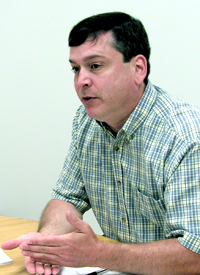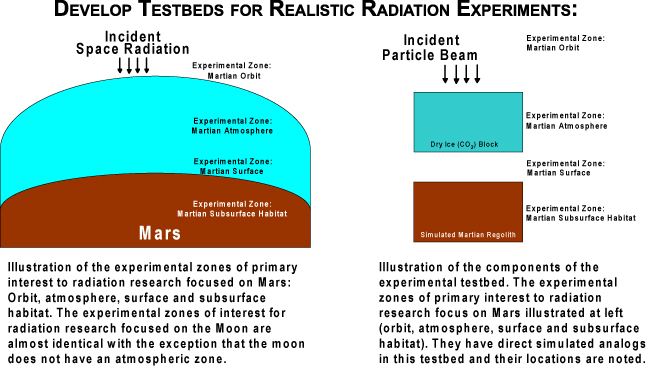
Primary Investigator – Brad Gersey
Exploring new frontiers in space radiation detection, instrumentation and dosimetry
The dosimetry component of the Center for Radiation Engineering and Science for Space Exploration (CRESSE) will design, develop and characterize the response of a suite of radiation detectors and supporting instrumentation and electronics with three primary goals that will:
(1) Use established space radiation detection systems to characterize the primary and secondary radiation fields existing in the experimental testbed zones during exposures at particle accelerator facilities.
(2) Characterize the responses of newly developed space radiation detection systems in the experimental testbed zones during exposures at particle accelerator facilities, and
(3) Provide CRESSE collaborators with detailed dosimetry information in experimental testbed zones.
CRESSE detectors will provide dosimetry and particle spectroscopy information for each of the experimental zones in the two (Martian and lunar) systems called Bioastronautics Experimental Research Testbeds (BERT) and Environmental Radiation Nostrum Investigations and Education (ERNIE).
The program will further develop radiation detector instrumentation for next generation flight dosimetry.
Dealing with radiation
NASA and the space community need the capability to predict risks from radiation for different mission scenarios including (1) environment, (2) interaction and transport, and (3) biological risk models. CRESSE researchers can then help minimize these risks in an optimal and cost effective manner using an efficient integrated approach.
What we need to know
CRESSE researchers are busy building accurate environmental models. The goal is to better understand and predict how radiation changes as it interacts with spacecraft, the atmosphere and other variables. Understanding comes from the physics through cross-sections, fragmentation models, ablation/abrasion and other indicators. Transport studies inform how the changes add up. CRESSE studies and research with materials will teach us what materials work best and geometry/design will help determine the safest and most efficient designs to use.

